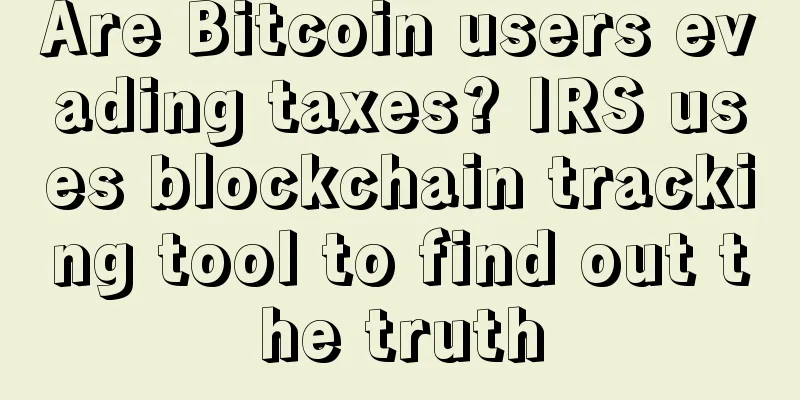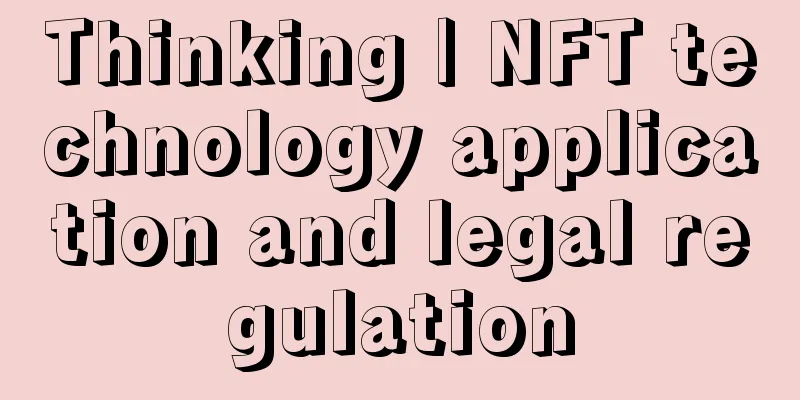Are Bitcoin users evading taxes? IRS uses blockchain tracking tool to find out the truth

|
The Internal Revenue Service (IRS) is actively pursuing tax evaders who use Bitcoin, deploying tools such as Chainalysis to uncover tax evasion. Many people think that Bitcoin is anonymous. But in fact it is semi-anonymous. All transactions are connected to specific addresses, and these addresses are visible on the open and transparent platform of blockchain. However, it is not possible to tie a specific wallet address to a real-world person or company without other information. Although good privacy protection can prevent information leakage, Bitcoin transactions will always intersect with the traditional currency system (when you use Bitcoin in a store or sell Bitcoin on an exchange), and identity proof becomes inevitable. Through reverse reasoning, it is possible to sort out the Bitcoin transaction chain to a certain extent. IRS and ChainalysisThe IRS has been trying to obtain details and circumstances surrounding bitcoin transactions that involve tax evasion. The IRS previously asked Coinbase to hand over user information from 2013 to 2015. The IRS has also reportedly signed a contract with Chainalysis to conduct transaction analysis and determine user identities. Chainalysis used information collected from public forums to label transactions and confirm identities. The leaked data sources included dark web and exchange deposit and withdrawal records. The IRS hopes to use this type of data to track down tax evaders and criminals who use Bitcoin to sell drugs and illegal goods and services. Is Chainalysis Really Viable?There are already Bitcoin mixing services that are specifically used to disrupt the source of Bitcoin. Among the many mixing services, Bitmixer.io is one of the best, but this service suddenly announced that it would stop operating earlier. Coinjoin transactions can also make it more difficult to trace the origin of Bitcoin transactions. Services such as Joinmixer can help like-minded users mix transactions to enhance privacy. Although Chainalysis claims to have information on a large proportion (25%) of Bitcoin addresses, these are likely addresses that do not have adequate privacy measures. If users deliberately obscure their transaction tracks, Chainalysis will not be able to obtain such transaction information. Are Altcoins Traceable?The IRS is trying hard to get the information behind Bitcoin transactions, but this action will be futile if it is extended to the entire cryptocurrency field. Coins like Dash, Monero, and ZCash have implemented privacy features that make their transactions difficult to track. If people switch from Bitcoin to these currencies, the IRS will have its work cut out for it when investigating tax evasion. Additionally, it would be impractical to muster the resources to investigate all cryptocurrencies. A clear and concise tax regime for cryptocurrency applications may be the best way to achieve compliance. Cryptocurrencies are still in a grey area, so it is very possible for people to hide their cryptocurrency assets from tax authorities. |
<<: Basic Coin (BAC) is launched on JuBi.com: snap-up mode starts on the 28th!
Recommend
What are the facial features of women with the best fortune? What does a woman with a good fortune look like?
Everyone hopes to have good fortune, but in fact ...
Is it good for a woman to have a mole on her forehead?
Moles are very common on our body and can grow an...
What is the fate of a man with a Guanyin mole? Analysis of the fate of a man with a Guanyin mole
Guanyin mole refers to a mole growing in the cent...
Seven facial features of a short life: People with wandering eyes
There are all kinds of people in this world. Some...
What kind of men are most afraid of their wives?
What kind of men are most afraid of their wives? ...
How Bitcoin Promotes Employment
Money makes the world go round. We've all hea...
What is Crane Eye? What is the meaning?
It is said that eyes are the windows to our soul....
Shandong High Court: Investing in or trading virtual currencies is not protected by law
Typical Cases of Shandong Courts Applying the Civ...
What is the value of Polkadot ecosystem in 2021? | Online Classroom
On January 19, 2021, PolkaWorld Marketing Directo...
Is nuclear power mining more efficient? Crypto mining may shift to areas with excess energy
On May 19, according to official news, the Resour...
What does it mean when the fate line is below the wisdom line?
The fate line and wisdom line are both important ...
Risecoin R coin is a new type of investment that takes over the wealth myth of Bitcoin
The latest and hottest investment and financial m...
Three kinds of unfortunate faces in life. These kinds of people have difficulty living a good life.
In life, people all hope that they can have a goo...
Facial lines tell you about your health
Facial lines tell you about your health The lines...
What does it mean to have a "川" pattern between the eyebrows?
A person's fortune and destiny can be seen fr...









